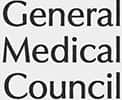
If you are looking for ways to lose weight and get rid of fat around your body, we can help. To understand the options are available for losing weight, or which areas to target, it is important first to understand what types of fat there are and how they function around our body. Where fat ends up depends on several factors, including genetics, lifestyle and the way hormones are regulated in the body. Adipose tissue found around our internal organs is called visceral fat. In contrast, adipose tissue accumulated under the skin is called subcutaneous fat. We’ll discuss these two types of fat more in-depth and let you know how you can get rid of them.
When talking about fat on the body, we’re dealing with both visceral and subcutaneous fat. Visceral fat is stored around the abdomen and is considered the “bad” kind of fat. The reason for this is an excess of belly fat can cause all kinds of health problems and may increase the risk of heart disease. Evidence shows these fat cells disrupt the balance and functioning of hormones within the body as well. Visceral fat is also directly linked to higher total cholesterol and LDL (bad) cholesterol and lower HDL (good) cholesterol. This situation can lead to a higher risk of stroke, diabetes and cardiac arrest. Therefore it is important to keep to a diet low in fat and sugar, and engage in regular exercise, to minimise the visceral fat around the abdomen. Eliminate trans fats from your diet, found in many types of meat, dairy products and fried food items. Subcutaneous fat, on the other hand, is a little more stubborn and can be a challenge to get rid of it through diet and exercise alone. You can find this type of fat all over the body, like on the arms and legs. Our body regards subcutaneous adipose tissues as an energy reserve and will only tap into it when we are in a continuous calorie deficit. It is difficult to target these local fat areas when one is trying to get rid of excessive fat. If you are grossly overweight, having too much fat of either kind can lead to serious health consequences.
Diet and exercise will lessen the amount of fat we have in areas of visceral and subcutaneous fat, but visceral fat is much more responsive to healthy lifestyle changes. It’s recommended to exercise at least thirty minutes per day, five days a week, and strength training has the biggest effect on lowering body fat while increasing muscle mass. Subcutaneous fat is the deepest level of fat and often diet and exercise will not give the results you want. That is why treatments such as cryolipolysis, injection lipolysis and liposuction can be tempting choices to help you jump start your weight loss and lose subcutaneous fat. Ultimately, the appeal of these procedures is they are effective in dissolving stubborn localised fat.
Liposuction is effective in eliminated small amounts of localised fat, but not everyone qualifies for this procedure. It is not ideal for those who are obese; instead, it’s a tool to help shape targeted areas where there’s more fat than you like. Liposuction is not a good choice for everyone because it’s an expensive surgical procedure with long downtime. There is also more risk involved with surgery — not to mention it is far more expensive than less invasive options.
Non-surgical procedures for fat loss have gained momentum and are popular options in our clinic. Recent studies have proven that injection lipolysis, such as Aqualyx® can facilitate a natural clearance of fat via the normal systems of the liver. Aqualyx injection lipolysis is a non-surgical solution that is very safe and effective in getting rid of stubborn local fat, giving you the results you want with little to no downtime. We have a couple of options for weight-loss treatments without surgery at our clinic in London.
Do you want to lose stubborn localised fat? Book a consultation with our experts today. We offer the best treatments for non-surgical weight-loss and our services meet all your cosmetic needs.







